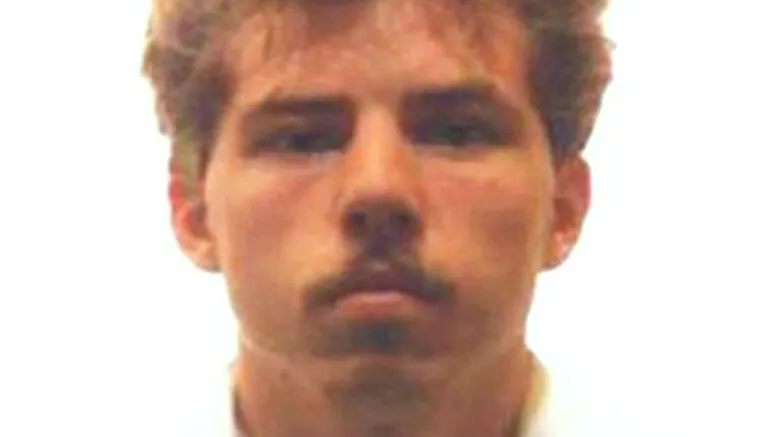Impact of murder a 'life sentence' for family
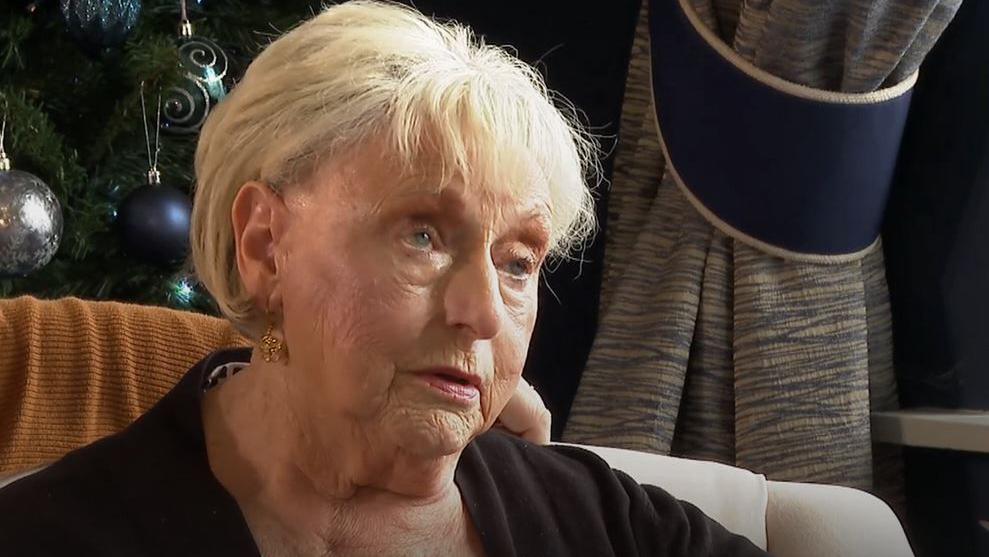
Ann Ming says her daughter's killer should never be freed
- Published
A mother who got the law changed so her daughter's murderer could be jailed has said she and her family are the ones experiencing a life sentence.
William Dunlop murdered Julie Hogg, a 22-year-old mother of one, in Billingham in 1989 but was not jailed until 17 years later, following a campaign to change the double jeopardy law.
The Parole Board is currently considering Dunlop's application to be moved to open conditions after serving 18 years of a life sentence in prison.
Ms Hogg's mother Ann Ming, who attended the public part of the panel hearing, said Dunlop, now 61, should never be freed.
During a two-day hearing partially held in public, Dunlop told the Parole Board panel he had been a violent "monster" who thrived on a hard man image in Billingham.
He admitted he was a "horrible" domestic abuser who viciously attacked his partners and was regularly in pub fights and assaults, using violence whenever he felt rejected or that his pride or reputation had been challenged.
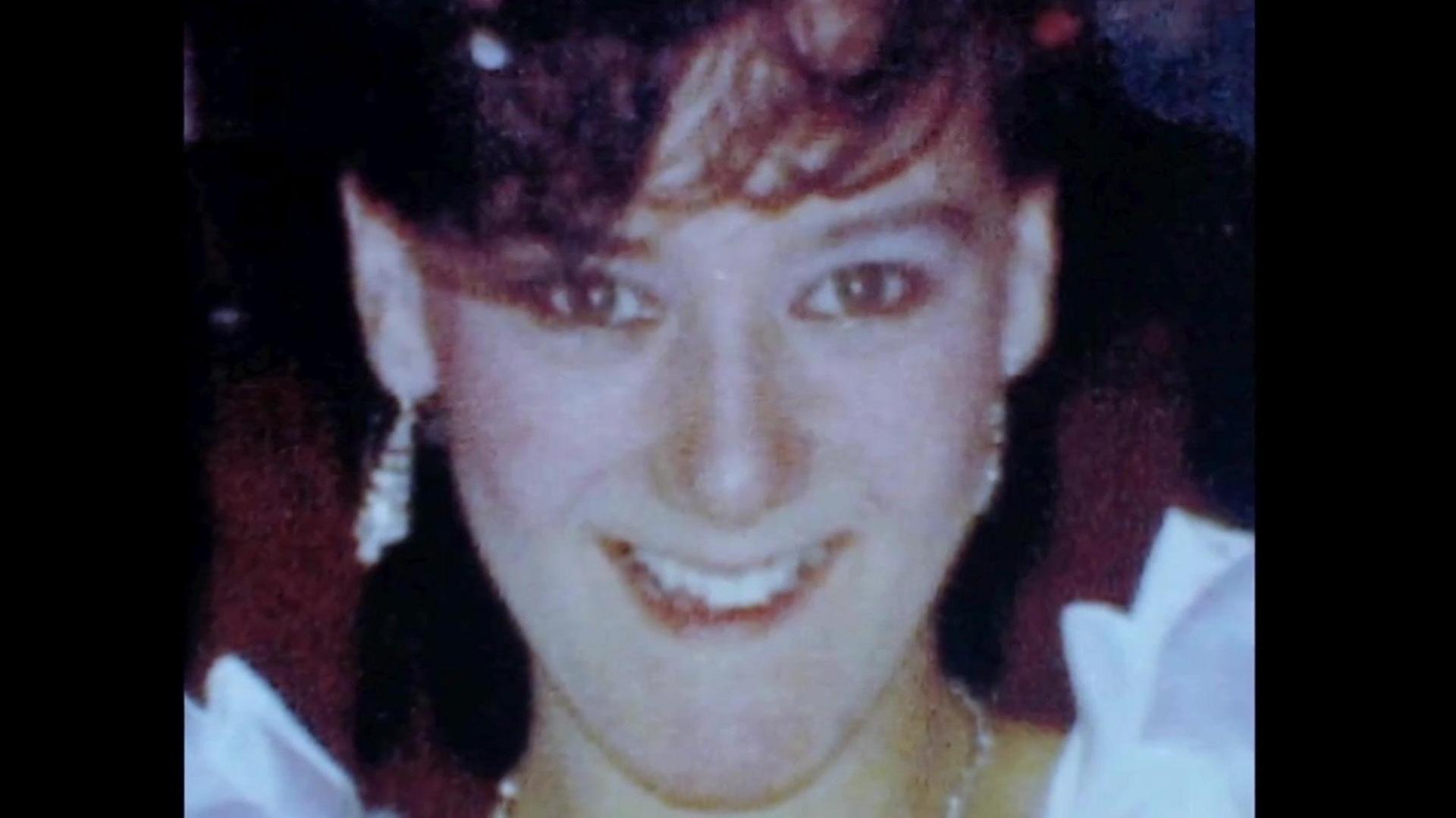
Julie Hogg was murdered in 1989
But, after completing years of prison courses and therapy programmes, he said he had become a totally new person, one who found happiness in being positive towards people rather than negative.
He was acquitted of Ms Hogg's murder after a second jury failed to reach a verdict in the early 1990s, but later boasted about the killing to a prison guard.
Dunlop was successfully prosecuted for perjury, but could not be tried again for the murder until Ms Ming's campaign changed the law.
All the prison professionals involved in his case agreed the convicted killer and liar had sincerely changed and should now be moved to open conditions where his ongoing rehabilitation could be further tested.
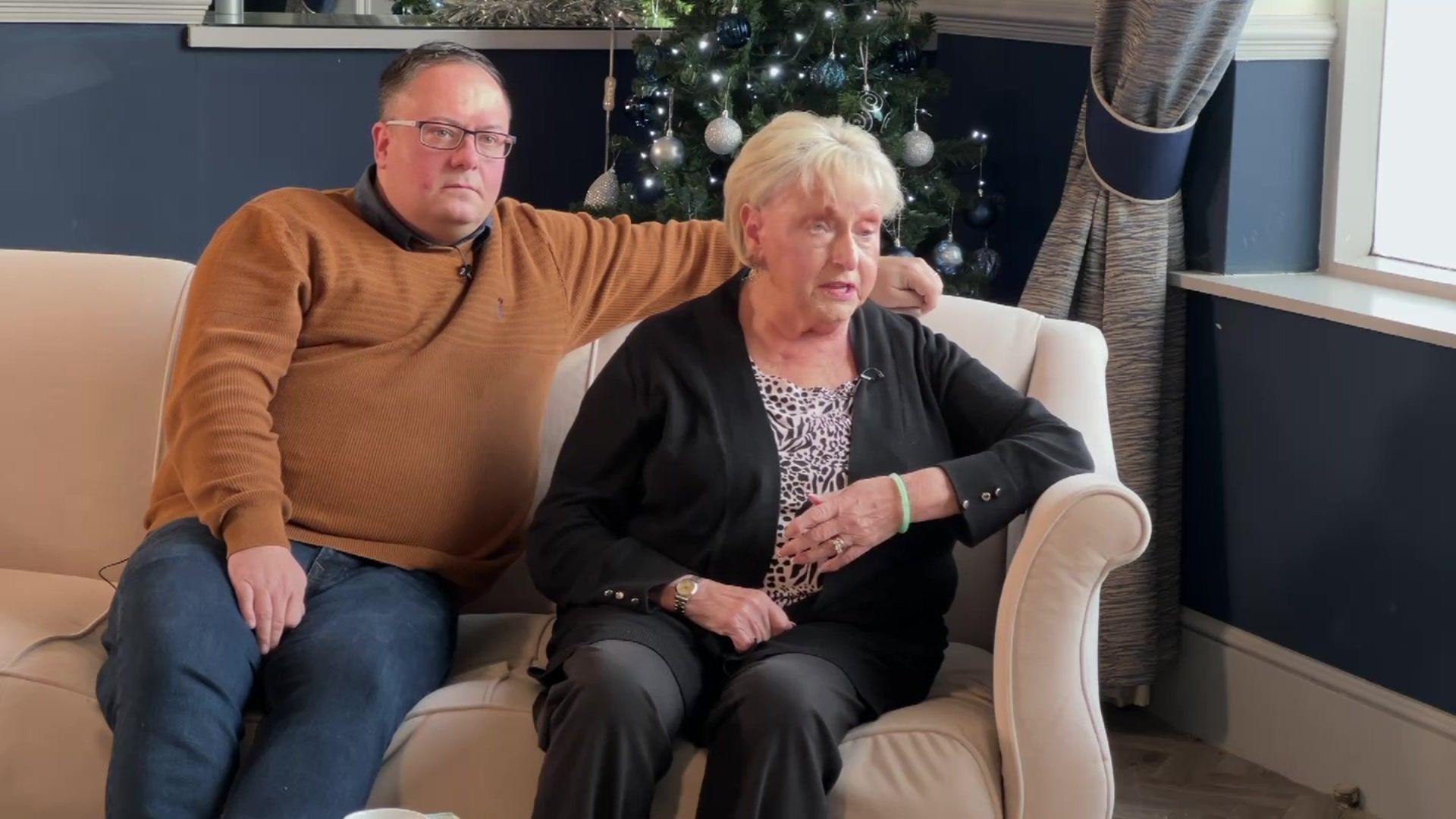
Julie Hogg's son Kevin and mother Ann Ming attended the Parole Board hearing
But Ms Ming said the man who lied and then bragged about strangling and sexually assaulting her daughter before hiding her body beneath a bath should never be released.
She also said he should repay compensation he received for the time he spent in custody before being acquitted after the second of two early 1990s trials, details of which the BBC is trying to clarify.
Speaking outside the Royal Courts of Justice in London, Ms Ming said she still believed Dunlop was a ''violent individual'' and listening to his claims to the Parole Board had been ''horrendous".
She told the BBC: "We as a family are doing a life sentence, we are living and breathing what he did until the day I die.
"No parole, a life sentence."
'Listen to victims' families'
Ms Ming said Dunlop was "bragging" about the killing and committed other serious offences.
"Does that give any sense of he is safe? Would you want him living next door to you? I certainly wouldn't."
She said she missed Ms Hogg now as much as she ever had, adding: "I wouldn't want him to put another family through what he has put us through."
Ms Ming also implored the Parole Board and judges to "listen more to the victims' families".
"It's horrible, you feel as though the prisoner is pulling the strings every step of the way."
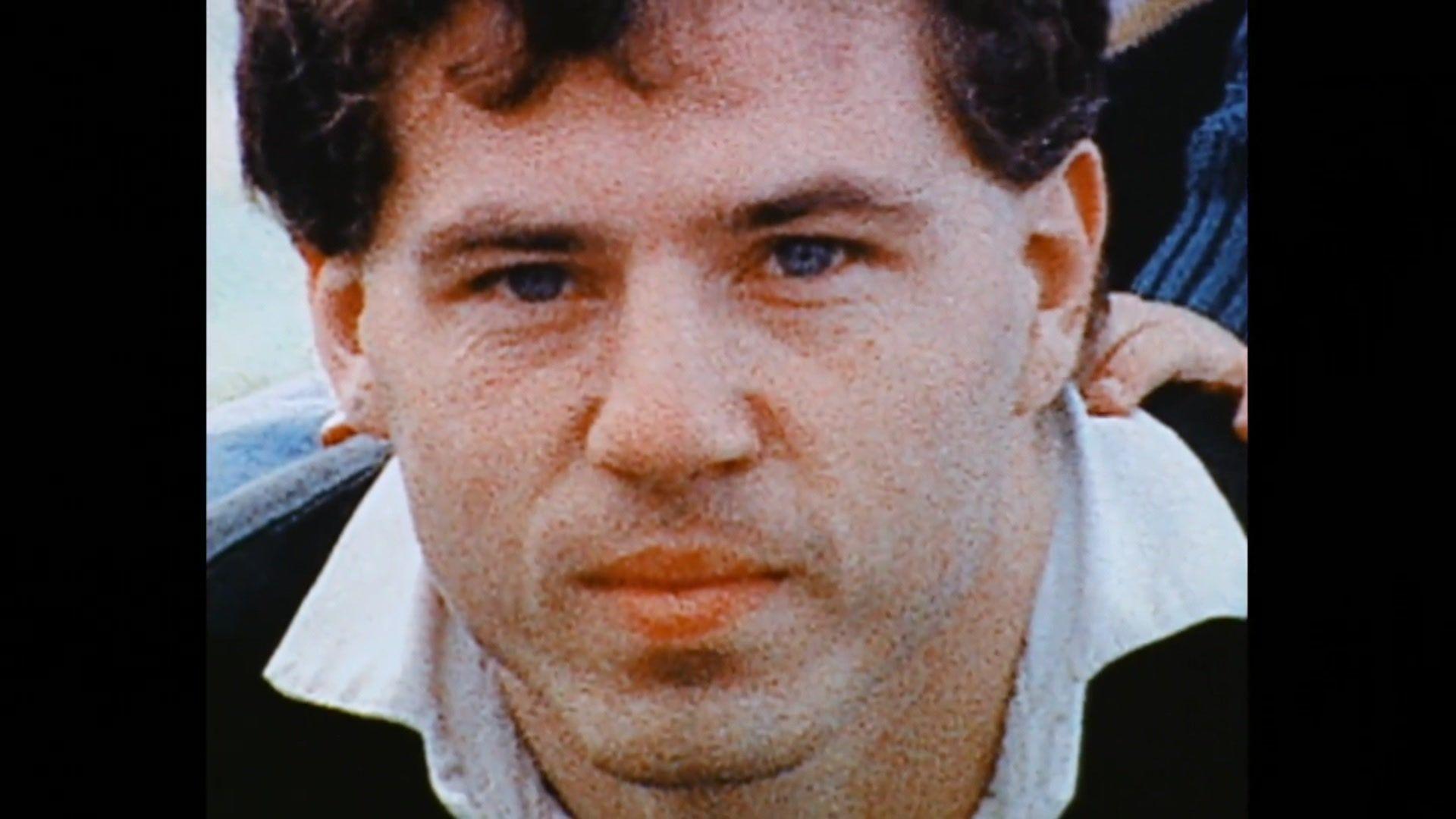
William Dunlop said he had been a monster but was now a different person
As well as the two days of open hearing, the Parole Board panel is also considering an abundance of evidence in closed sessions.
During the process, Dunlop said he
was an angry, rage-filled man fuelled by drink and ego and it was a possibility he could have gone on to kill more people
confessed to killing Ms Hogg out of "bravado" and believed he could not be prosecuted again for the murder
thought Ms Hogg as a "lovely" and "witty" woman who he took all his anger and rage out upon when she rejected him
hated Ms Ming for continuing to campaign for the law change but now had a lot of respect and time for her, bearing her no malice or animosity
understood the family's position of wanting him to never be released but he had changed and felt genuine remorse and shame for his actions
felt sexually deficient as a younger man and the only emotions he felt he could show were happiness or anger
had "unwritten rules" partners and friends were supposed to follow and would attack them if they failed, even though they did not know what his rules were
The panel also heard Dunlop viciously attacked a man at a rugby club hours before killing Ms Hogg.
In 1997, he repeatedly stabbed an ex-girlfriend and beat her new partner with a baseball bat in a "murderous attack" for which he was jailed for seven years, during which sentence he confessed to killing Ms Hogg.
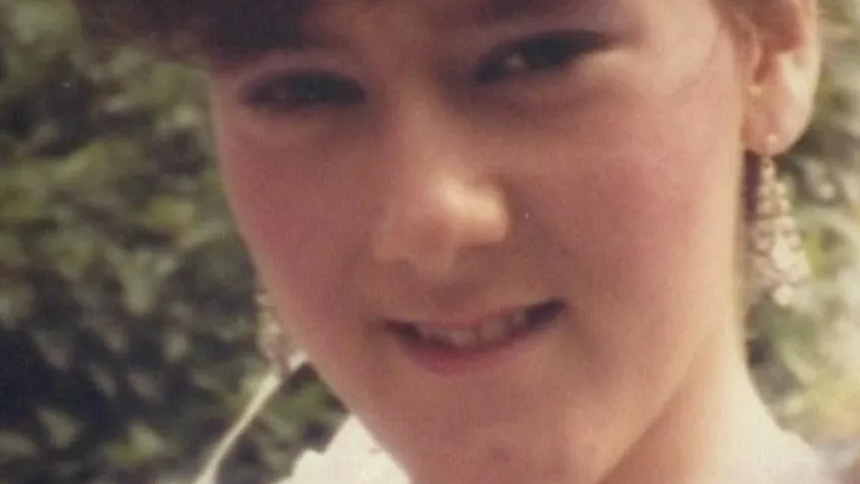
Julie Hogg was a 22-year-old mother of one when she was murdered
There were also at least 22 other offences of which he had been accused but not prosecuted, which the panel considered and found some proven on the balance of probabilities, although the details were not revealed.
Various professionals said those findings of fact had not changed their view that he was ready for a move to open conditions, saying the many courses and therapy programmes Dunlop had completed inside had changed him.
He had initially sought full release on licence but changed his application partway through proceedings after hearing the recommendations of people including offender managers and a psychologist.
The Parole Board panel is set to make its recommendation to the secretary of state, who will have the final decision, in January.
Correction 6 October 2025: This article originally stated that William Dunlop was acquitted twice. It has been amended to make clear that there was no result in the first trial and that he was acquitted after a second trial in which the jury could not reach a verdict.
Follow BBC Tees on X,, external Facebook, external, Nextdoor and Instagram, external. Send your story ideas to northeastandcumbria@bbc.co.uk.
Related topics
- Published18 December 2024
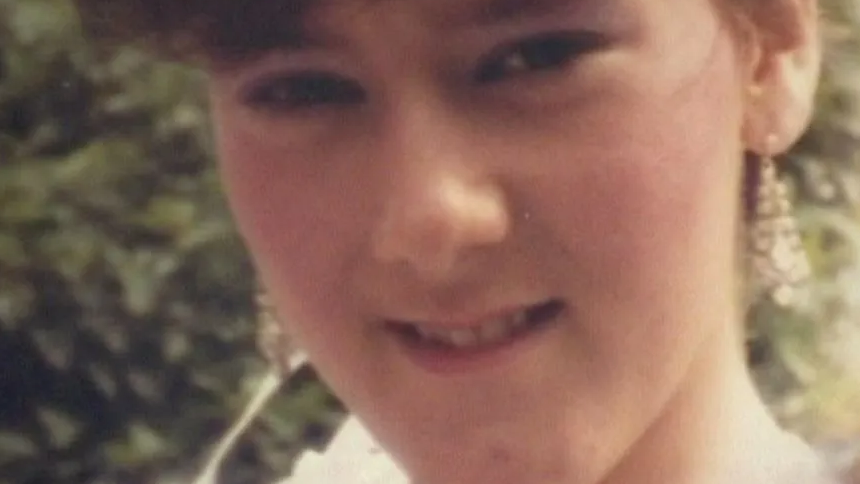
- Published6 October
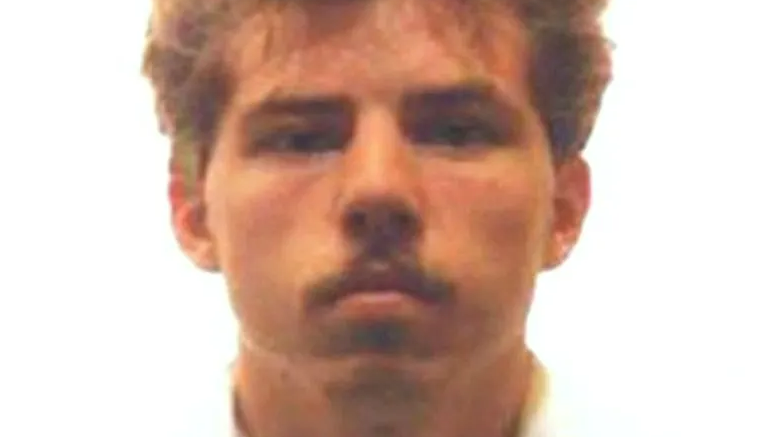
- Published16 December 2024
